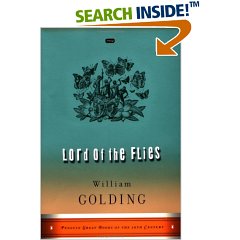“And the Lord said to Himself, ‘I will never again curse the ground on account of man, for the intent of man’s heart is evil from his youth.’”
This Biblical claim, made in Genesis 8:21, declares that man is evil and has been since his arrival to earth. William Golding sought to bolster this assertion with his 1954 allegorical novel, Lord of the Flies. Golding tells the story of a group of adolescent boys stranded on a desert island. With no adults to instruct them, they seek to establish a primitive form of government, but their plan fails and many of them resort to savagery and anarchy.
With his chilling tale of man’s innate inclination toward evil, Golding has stirred up endless controversy. His story sought to discount those who claimed man was inherently good, but performed evil acts due to the influence of other people. By showing the corruption experienced by innocent youths, relatively ignorant of evil, he built a strong case against advocates of man’s intrinsic virtue.
Lord of the Flies has experienced immense popularity due primarily to its simple, straightforward style. It avoids pretentious language and philosophical speculation, choosing to convey its message strictly through the allegory.
It is a thrilling read, and keeps the reader turning the pages to discover what further atrocities will be committed. That being said, it is at times deeply disturbing and gruesome, particularly the description of a mob of the children brutally murdering another child.
Lord of the Flies is and will continue to be a refreshingly insightful look into human nature, but also a somber warning for those optimistic about innate human virtue. Surely there is good in the world, and surely humans perform good deeds, but Golding gives alarming evidence that this good is not a natural quality, even in seemingly naïve youths.







